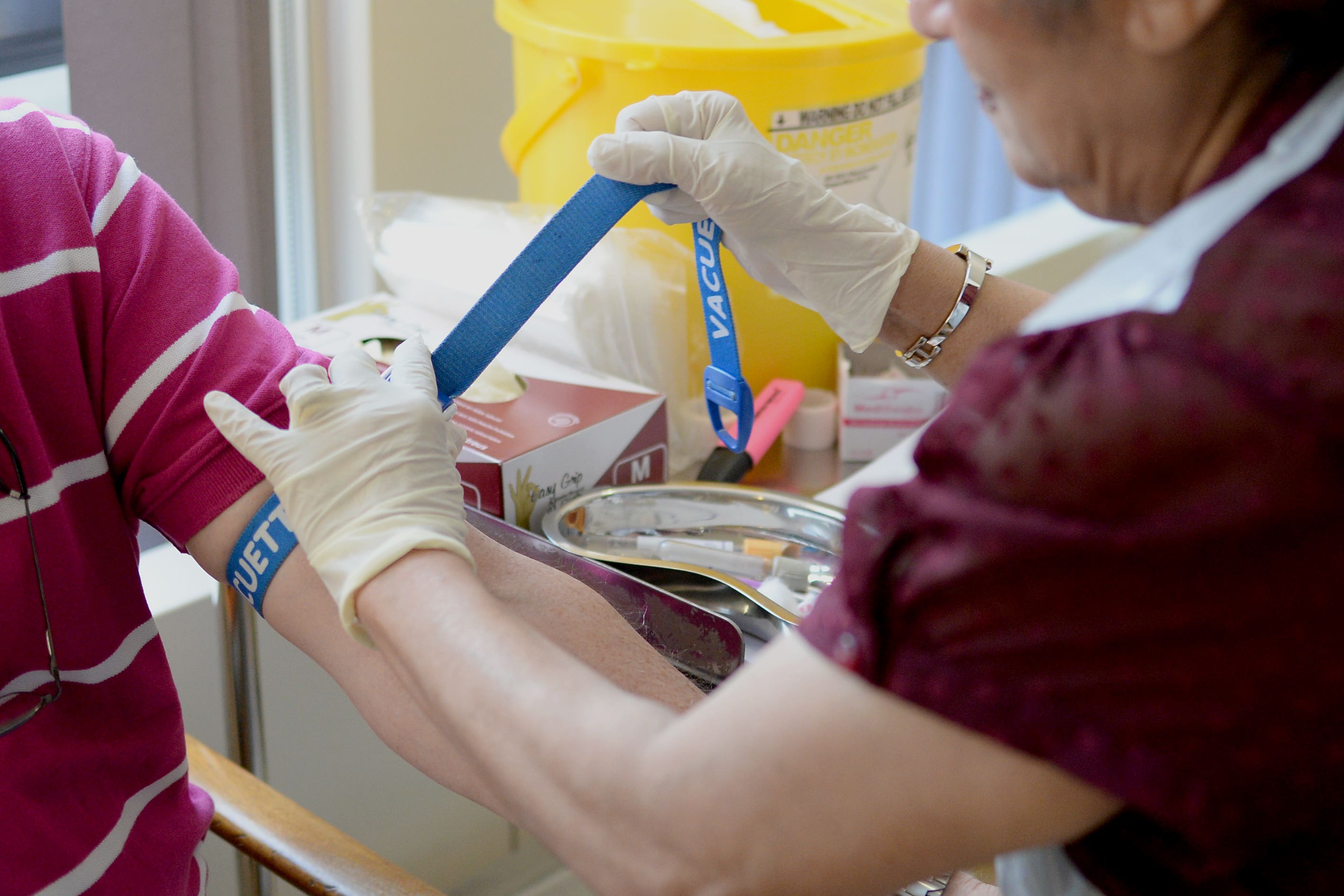Common blood tests could help speed up cancer diagnosis in certain people
Guidelines say that people should be given an urgent cancer referral if their risk of cancer is higher than 3%

Routine blood tests could help to speed up cancer diagnosis among people with stomach pain or bloating.
Researchers found that in 19 commonly used blood tests, abnormal results were linked to a higher risk of being diagnosed with cancer within a year.
If these abnormal results were taken into account, there would have been a 16% increase in the number of people with undiagnosed cancer who were given an urgent referral, compared to assessment based on symptoms, age and sex alone, the scientists estimated.
This is the equivalent of an extra six people with undiagnosed cancer being urgently referred out of 1,000 people who had visited the GP with stomach pain or bloating.
The urgent referrals may even increase the likelihood of successful treatment, the researchers suggest.
Lead author Dr Meena Rafiq, of the UCL department of behavioural science and health, said: “Our study suggests we can improve cancer detection with blood tests that are already available and that are routinely given to patients with non-specific symptoms whose cause is unclear.
“This could be an efficient, affordable way to improve early cancer diagnosis and in some cases increase the likelihood of successful treatment.”
She added: “Half of all people with as-yet-undetected cancer will first go to the doctor with vague symptoms that can be challenging to diagnose.
“Many of these patients are investigated in primary care with commonly used blood tests that could help to identify which patients are most likely to have underlying cancer and should be prioritised for referral.
“This research shows these common tests can substantially enhance assessment of cancer risk.”

People who report symptoms of bloating or stomach pain to their GP tend to be referred for blood tests, but it is not known how well these blood tests can predict cancer risk.
The new study, published in PLOS Medicine, looked at data from more than 400,000 people aged 30 or older in the UK who had visited a GP due to stomach pain and more than 50,000 who had visited their GP due to bloating.
Two thirds of this group had blood tests following their appointment.
The study used anonymised patient data from the Clinical Practice Research Datalink (CPRD), collected from a network of GP practices across the UK between 2007 and 2016.
The researchers found that one in 50 (2.2%) people who went to the doctor reporting stomach pain was diagnosed with cancer over the next 12 months.
The same proportion (2.2%) of people reporting bloating were also diagnosed with cancer within a year.
Guidelines from the National Institute for Health and Care Excellence (Nice) say that people should be given an urgent cancer referral if their risk of cancer is higher than 3%.
According to the findings of the new study, people aged 60 or over who had gone to the GP with either stomach pain or bloating had a high enough risk to warrant an urgent cancer referral (that is, their risk was higher than 3%) regardless of blood test results.
Currently, people over 60 with stomach pain or bloating are only given a cancer referral in the UK if they have an additional potential cancer signal such as weight loss.
Risk of cancer was estimated to be 3.1% for men in their 60s reporting stomach pain, rising to 8.6% for men in their 80s with this symptom.
The risk was 3.1%, rising to 6.1% for women in these age groups.
Among people aged 30 to 59 years who reported the symptoms, iron deficiency, and a number of abnormal protein measures, as well as an increase in inflammatory markers, strongly predicted a risk of undiagnosed cancer.
For example, in women aged 50 to 59 with abdominal bloating, pre-blood test cancer risk of 1.6% increased to 10% with raised ferritin (blood protein that contains iron), to 9% with low albumin (protein found in plasma), to 8% with raised platelets, to 6% with raised inflammatory markers and to 4% with anaemia.
Researchers say only raised platelets and anaemia are currently included in guidelines for cancer referral.
The study also found that bowel cancer, followed by prostate and pancreatic cancer in men, were most common for people with these symptoms.
While in women bowel cancer was followed by breast and ovarian cancer, the study found.
Subscribe to Independent Premium to bookmark this article
Want to bookmark your favourite articles and stories to read or reference later? Start your Independent Premium subscription today.
